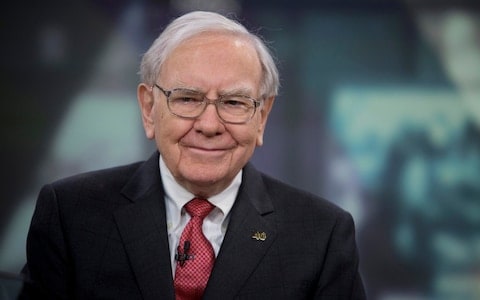
Warren Buffett understands business and investing inside and out. But he didn’t learn everything he needed to know during his time in college — and he certainly doesn’t think school is the only way to develop and refine your skills. “I don’t think college is for everyone,” Buffett told students of Ivey Business School at Western University in 2012. “The best education you can get is investing in yourself. But this doesn’t always mean college or university.”
In a clip found using CNBC’s Warren Buffett Archive, an audience member at Berkshire Hathaway’s Annual Shareholders meeting in 1995 asks if Buffett and his business partner Charlie Munger if they would ever consider starting their own business school to impart their knowledge to future generations. The pair scoffs at the idea.
“Generally speaking, I think we always get a group of wise people after sifting millions,” Munger says. “But I don’t think anybody’s invented a way to teach so that everybody is wise.”
Buffett cites his parents and his mentor Benjamin Graham as major influences on his success. “I think you can learn a lot from other people,” he says. “In fact, I think, if you learn reasonably well from other people, you don’t have to get any new ideas or do much on your own. You can just apply the best of what you see.”
The Oracle of Omaha offers a few insights into how he learns, however. Here are two of this top methods.
He reads
“I’ve mainly learned by reading myself,” he says, singling out Graham, who wrote “The Intelligent Investor,” and Phil Fisher, author of “Common Stocks and Uncommon Profits,” as two of his favorites.
Buffett estimates that he spends five or six hours a day poring over books and newspapers.
For maximum success, he suggests everyone dedicate time to reading throughout their day. “Read 500 pages like this every day,” Buffett once reportedly told students, pointing toward a pile of reports and papers. “That’s how knowledge works. It builds up, like compound interest. All of you can do it, but I guarantee not many of you will do it.”
He studies successful people
Buffett says that business schools should study real-world examples of success, such as Nebraska Furniture Mart founder Rose Blumkin in Omaha. He explains to the audience that Mrs. B., as he calls her, started her store with $500 in 1937, “without a day in school in her life.”
“What is there to learn from seeing somebody create an incredible success like that in a competitive business?” Buffett says. “She didn’t invent something that the world had never seen before. She didn’t have a lock on some piece of real estate that protected her from competition. You know, all of these — and yet, she accomplished something that virtually no one has accomplished.”
Understanding what helps businesses like this thrive can’t really be taught in a classroom. “If you go to any of the top 20 business schools, you know, there’s not one page that’s being given to anybody to study what is an incredible success,” Buffett says.
He acknowledges that “it’s probably a little discouraging to a professor of management at some major business school that has gone on to get his doctorate and everything, to think he has to come and hang around the Furniture Mart and study a woman in a golf cart.”
However, he says, “they’d be better off if they did.”























